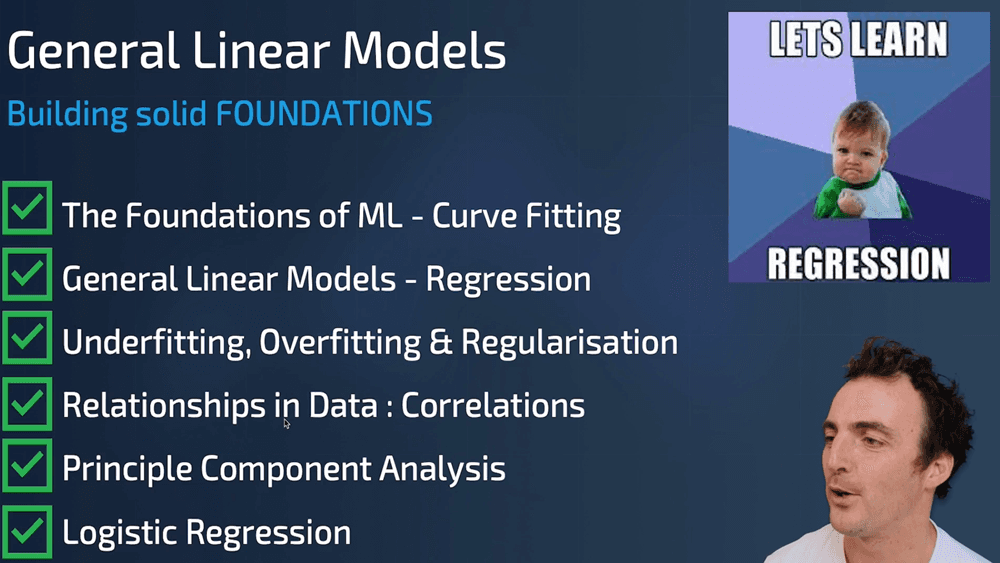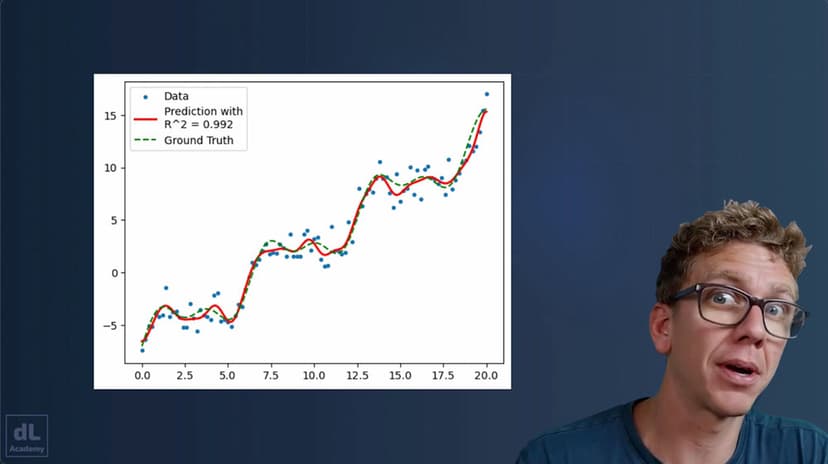- Be an expert on the most important machine learning model: the linear model.
- See how linear assumptions may be used to solve non-linear problems.
- Have learnt core principles in a tangible way, ready to take with you to more complex models.
- Have practiced deploying general linear models for your own projects.
Ok, linear models might not seem that exciting. People think at first that they're just straight lines...this is so wrong, I love them! They provide the basics you need to understand advanced topics like deep neural networks or Gaussian Processes. To be honest, they underpin everything in ML.
In this final section, we will work through the key concepts of fitting both Linear and Generalised Linear Models (GLMs). We will talk about feature selection - which includes Predictive Power Score (or PPS) and Principle Component Analysis (PCA). We'll also cover the important topic of over-fitting and how we address this using regularisation methods.
We'll be playing in ninja mode; so the gloves come off in this course to wrestle with the ultimate machine learning model: the linear model. Plenty of reasons for taking a deep dive here:
- This is an intuitive tangible model on which to build fundamental concepts.
- We can adapt the linear model to solve more complicated problems--hence the general linear model.
- We can even develop an intuitive approach to classification problems with this model.
- The linear model is the ultimate explainable model.
We shall also review key ideas in data analysis such as Principle Component Analysis (PCA); under-fitting, over-fitting and Regularisation; and Correlation in data.
We will keep our focus on useful insights and practical tips in order to become a full-blown ninja when using general linear models in your own projects.
In this course we will cover:
- An intuitive introduction to general linear models--learn the core foundations needed for building more advanced models.
- Building in key concepts of linear models to more advanced (general) linear models.
- A deep dive into the linear models that give you the core foundations needed for building more advanced models.
- Best practices and tips for building and assessing models applied to your data.
We‘ll work on the basis that you’re pretty new to Python, but have some basic understanding of fundamental programming concepts and can run code locally on your machine.
If you feel like you could do with an introduction or a refresher, then take a look at Seán's free course which will get you up to speed on these Python basics, Getting Started and Python Basics.
🤖 Use AI to help you learn!
All digiLab Academy subscribers have access to an embedded AI tutor! This is great for...
- Helping to clarify concepts and ideas that you don't fully understand after completing a lesson.
- Explaining the code and algorithms covered during a lesson in more detail.
- Generating additional examples of whatever is covered in a lesson.
- Getting immediate feedback and support around the clock...when your course tutor is asleep!


